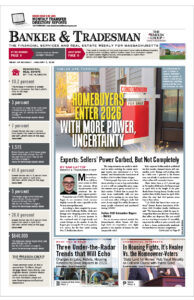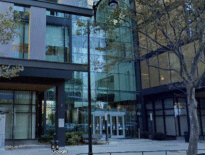Is Boston headed for a fiscal cliff or a fiscal hiccup thanks to falling office utilization?
It depends on who you believe, and how you read the future of the city’s office buildings. But one thing’s for sure: the real estate community shouldn’t take fears of a calamity lightly, and every city stakeholder should use the threat as an occasion to fix things that have long been broken.
In case you missed it a brand-new advocacy group that calls itself non-partisan, the Boston Policy Institute, released a report written by respected analyst Evan Horowitz claiming the city could see its annual budget cut by $400 million to $500 million in five years. The cause? Collapsing property tax revenue from downtown offices due to a high vacancy rate that’s causing some offices to trade hands at big discounts.
A spokesperson for Mayor Michelle Wu’s administration said “we do not anticipate instability in our revenue streams,” even as the mayor launched several initiatives in the last two years to try to head off or at least mitigate any “urban doom loop.”
Who’s right? It’s worth noting that many buildings are still performing well, that city property tax valuations lag market conditions and that applications for property tax abatements in downtown are up over 2023 but substantially below 2022 levels. And the anxious should take note that the Boston Policy Institute’s founder has refused to disclose anything about its backers. Its agenda is as murky as its pedigree is short.
But at the same time, the real estate industry – and the mayor’s base – is whistling past the graveyard if they chalk this talk up to supposed political skullduggery or a case of Chicken Little syndrome. During Boston’s commercial property tax crisis in the early 1980s, city services took a hammer blow from substantial layoffs, while Mayor Kevin White took the eminently misguided step of jacking up commercial property tax rates to compensate, stymieing the new development that could have pulled the city out of its predicament.
If you aren’t lobbying everyone you know to take this seriously and find solutions, you’re doing it wrong.
The best thing Boston residents and politicians can do right now is get behind a growth agenda. Clear the path for more apartments and hotels, both downtown and in the neighborhoods, along with new class A-plus offices as they won’t be subject to the limitations of Proposition 2½. Get out of the way and embrace zoning that allows new buildings by right and a huge range of uses in downtown’s empty spaces so successful experiments, from tiny theaters and recording studios to green-tech incubators have room to flourish.
But lenders, building owners and operators need to step up, too, and join civic and business efforts to reimagine downtown as a destination and drive value by appealing to more than the 9-to-5 crowd. The downtown of 2019 isn’t coming back, and leasing strategies that assume otherwise will only hurt your asset’s ability to bounce back when its persistently vacant space drags down the entire neighborhood.
Whatever direction downtown Boston takes, we all need to pull together to produce a win.
Letters to the editor responding to this editorial or other topics may be submitted via email to editorial@thewarrengroup.com with the subject line “Letter to the Editor.” Submission is not a guarantee of publication.






